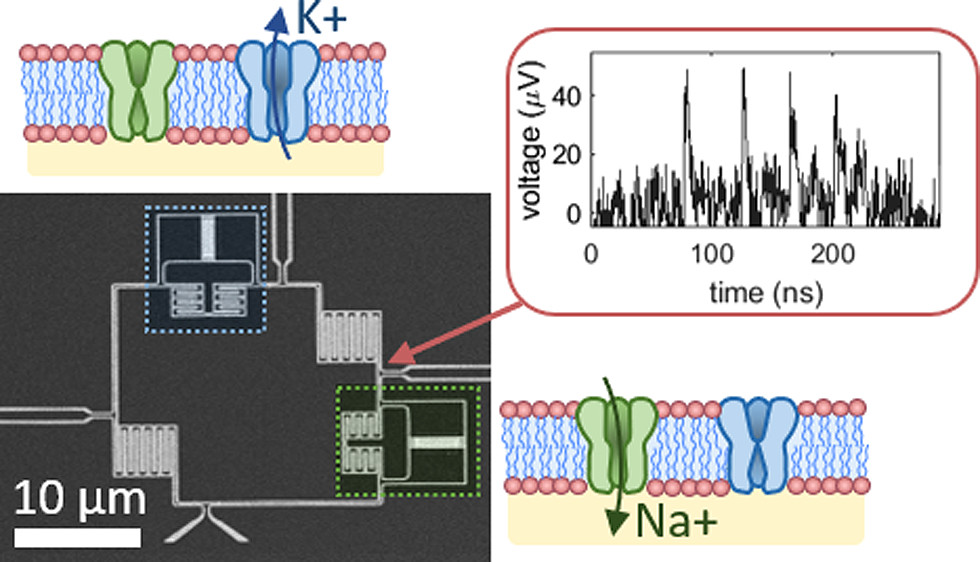As the limits of traditional von Neumann computing come into view, the brain’s ability to communicate vast quantities of information using low-power spikes has become an increasing source of inspiration for alternative architectures. Key to the success of these largescale neural networks is a power-efficient spiking element that is scalable and easily interfaced with traditional control electronics. In this work, we present a spiking element fabricated from superconducting nanowires that has pulse energies on the order of ∼10 aJ. We demonstrate that the device reproduces essential characteristics of biological neurons, such as a refractory period and a firing threshold. Through simulations using experimentally measured device parameters, we show how nanowire-based networks may be used for inference in image recognition and that the probabilistic nature of nanowire switching may be exploited for modeling biological processes and for applications that rely on stochasticity.
A complete description of the work may be found here.

